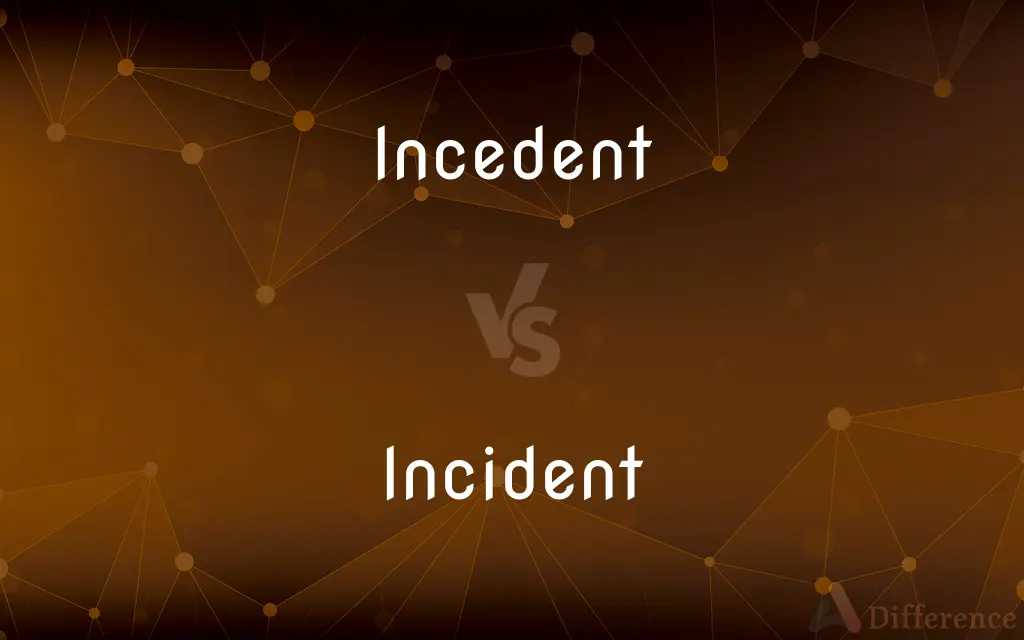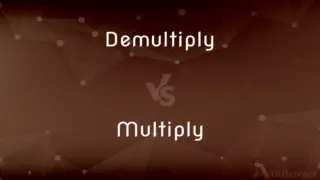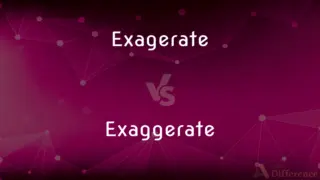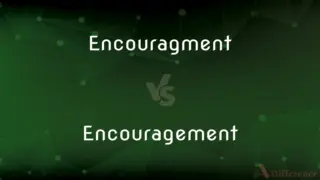Incedent vs. Incident — Which is Correct Spelling?
By Tayyaba Rehman — Updated on March 20, 2024
"Incedent" is the incorrect spelling, while "Incident" is the correct one, referring to an event or occurrence, often of significance.

Table of Contents
Which is correct: Incedent or Incident
How to spell Incident?

Incedent
Incorrect Spelling

Incident
Correct Spelling
ADVERTISEMENT
Key Differences
Connect "incident" with "coincidence," both of which share the "c-i-d" sequence.
Recall "Incident" has only one "e" just like the word "event."
Visualize an "incident" as a dent in a smooth timeline to recall the "dent" ending.
Pronunciation hints at the correct spelling: "in-si-dent".
Think of the term "In-CID-ent," where "CID" stands for "Certain Individual's Decision" to remember the middle part.
ADVERTISEMENT
How Do You Spell Incident Correctly?
Incorrect: An incedent report was filed after the meeting.
Correct: An incident report was filed after the meeting.
Incorrect: The manager is aware of the incedent.
Correct: The manager is aware of the incident.
Incorrect: Please explain the incedent that occurred yesterday.
Correct: Please explain the incident that occurred yesterday.
Incorrect: There was an incedent at the school today.
Correct: There was an incident at the school today.
Incident Definitions
An individual occurrence or event.
The concert went smoothly, with only one minor incident.
A disruptive or unfavorable event.
An incident at the school caused parents to gather.
An event or action resulting in consequences.
The incident in the lab led to safety reviews.
A specific situation in a narrative or story.
The novel's major incident happens halfway through.
A clash or disagreement between people or groups.
A minor incident at the meeting escalated quickly.
A particular occurrence, especially one of minor importance.
An event in a narrative or drama.
A usually violent or disruptive occurrence, especially one that precipitates a larger crisis
An international incident that provoked war.
An occurrence that interrupts normal procedure or functioning; a mishap
The plane landed without incident.
(Law) Something contingent on or related to something else.
Tending to arise or occur as a result or accompaniment
"There is a professional melancholy ... incident to the occupation of a tailor" (Charles Lamb).
(Law) Related to or dependent on another thing.
(Physics) Falling upon or striking a surface
Incident radiation.
An event or occurrence.
She could not recall the time of the incident.
It was an incident that he hoped to forget.
The suspect was released without further incident.
A (relatively minor) event that is incidental to, or related to others.
An event that causes or may cause an interruption or a crisis, such as a workplace illness or a software error.
Arising as the result of an event, inherent.
Falling on or striking a surface.
The incident light illuminated the surface.
Coming or happening accidentally; not in the usual course of things; not in connection with the main design; not according to expectation; casual; fortuitous.
Liable to happen; apt to occur; befalling; hence, naturally happening or appertaining.
(legal) Dependent upon, or appertaining to, another thing, called the principal.
Falling or striking upon, as a ray of light upon a reflecting surface.
Dependent upon, or appertaining to, another thing, called the principal.
That which falls out or takes place; an event; casualty; occurrence.
That which happens aside from the main design; an accidental or subordinate action or event.
No person, no incident, in a play but must be of use to carry on the main design.
Something appertaining to, passing with, or depending on, another, called the principal.
A single distinct event
A public disturbance;
The police investigated an incident at the bus station
Falling or striking on something
(sometimes followed by `to') minor or casual or subordinate in significance or nature or occurring as a chance concomitant or consequence;
Incidental expenses
The road will bring other incidental advantages
Extra duties incidental to the job
Labor problems incidental to a rapid expansion
Confusion incidental to a quick change
Incident Meaning in a Sentence
The police investigated the incident thoroughly.
Following the incident, safety measures were enhanced.
He was not involved in the incident outside the store.
She witnessed the incident and provided a statement to the authorities.
The incident prompted a community meeting to discuss public safety.
The incident at the park was reported in the local news.
He wrote a detailed account of the incident in his journal.
The incident caused a delay in the schedule.
The incident led to a review of emergency procedures.
Parents were notified about the incident at the school.
The company issued a statement apologizing for the incident.
Security footage captured the entire incident.
After the incident, the area was cordoned off for investigation.
The incident was a turning point in the policy reform.
The investigation concluded the incident was an accident.
She was shaken by the incident but unharmed.
The incident highlighted the need for better communication.
The incident sparked a debate on social media.
The incident report included witness testimonies.
Emergency services responded quickly to the incident.
Common Curiosities
What is the root word of Incident?
The root is the Latin "incidere."
What is the pronunciation of Incident?
"IN-si-dent."
Which vowel is used before Incident?
Typically, the article "an" is used before "incident."
Which conjunction is used with Incident?
Context-specific, but could be "and" as in "an incident and its aftermath."
What is the verb form of Incident?
The verb form related to "incident" is "incide," though it's rarely used in modern English.
Which article is used with Incident?
Either "an" or "the" depending on the context.
Is Incident an abstract noun?
No, it refers to a tangible event or occurrence.
Is Incident a negative or positive word?
Neutral. The connotation depends on context.
Why is it called Incident?
It derives from Latin "incidere" meaning "to fall upon, befall."
Is Incident a vowel or consonant?
"Incident" is a word, not a single letter. It contains both vowels and consonants.
What is the singular form of Incident?
"Incident."
What is the plural form of Incident?
"Incidents."
Which preposition is used with Incident?
"of" as in "incident of theft."
Is Incident a collective noun?
No.
How many syllables are in Incident?
Three.
Which determiner is used with Incident?
"This," "that," "an," or "the" among others, depending on the context.
Is Incident a noun or adjective?
Primarily a noun, but can be an adjective as in "incident light."
Is the word Incident imperative?
No.
What is the stressed syllable in Incident?
The first syllable, "IN."
What is the opposite of Incident?
There isn't a direct opposite, but "non-event" might be used to describe something unremarkable.
How is Incident used in a sentence?
"The incident at the park caused quite a stir among the locals."
Is Incident an adverb?
No.
Is Incident a countable noun?
Yes. You can have one incident or several incidents.
Is the Incident term a metaphor?
Not in itself, but can be used metaphorically in certain contexts.
Is the word Incident a Gerund?
No.
Is the word “Incident” a Direct object or an Indirect object?
It can be either depending on its use in a sentence.
How do we divide Incident into syllables?
In-ci-dent.
What part of speech is Incident?
Noun, occasionally an adjective.
What is another term for Incident?
Occurrence or event.
Share Your Discovery

Previous Comparison
Demultiply vs. Multiply
Next Comparison
Exagerate vs. ExaggerateAuthor Spotlight
Written by
Tayyaba RehmanTayyaba Rehman is a distinguished writer, currently serving as a primary contributor to askdifference.com. As a researcher in semantics and etymology, Tayyaba's passion for the complexity of languages and their distinctions has found a perfect home on the platform. Tayyaba delves into the intricacies of language, distinguishing between commonly confused words and phrases, thereby providing clarity for readers worldwide.













































